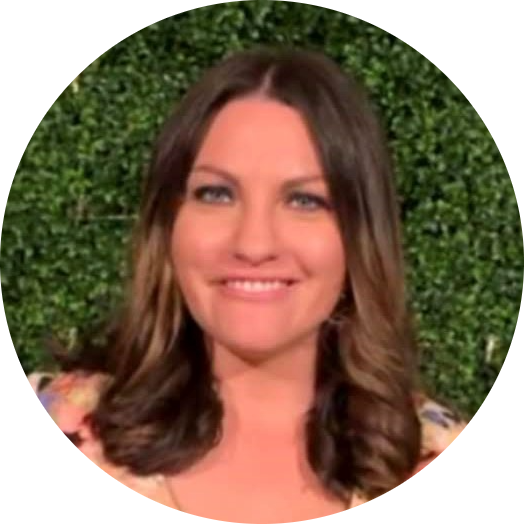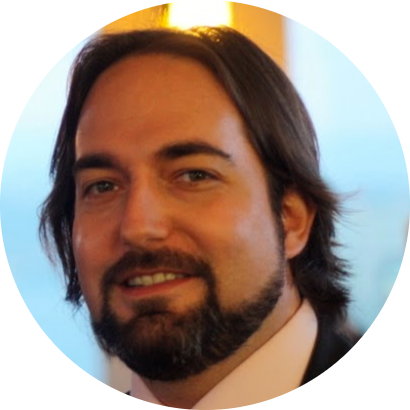In recent issues of our weekly Benchmarker newsletter, we’ve included several open positions in risk and security at universities. That’s a good sign. Working in security and risk in academia has always been complex. Managing the health and safety of both students and employees got a lot more complicated as country restrictions for COVID shut down study abroad operations. Those programs resumed within the past year.
It might be back to school season for some of us. For Jaime Signoracci, Director, International Safety & Security, University of Notre Dame, and Shaun Jamieson, International Risk Manager, Iowa State University, there’s work to do year-round. We caught up with Shaun and Jaime (whose team has one of those open positions!) to hear about COVID mapping, benchmarking in higher ed and much more.
Factal: We’re thinking a lot about “back to school” at the end of summer, but there’s no break for you. What has resuming study abroad after COVID been like?
Jaime Signoracci, Director, International Safety & Security, University of Notre Dame: At Notre Dame, we resumed study abroad programs first with a specialized program in summer 2021. We then fully resumed all other programs in fall 2022 and have successfully operated them ever since. We had ample time during the pandemic to conduct scenario planning and track risk indicators for all program locations, including where we have employees and academic and housing facilities abroad. Positive COVID-19 cases have occurred abroad just like they have on our main campus, but our study abroad students have really demonstrated resilience and have rolled with the punches, especially in late 2021 and early 2022 with the rise of the Omicron variant. Students have largely been able to have a “normal” study abroad experience, but they are much more aware of the risks involved with international travel and are more prepared than ever before because of COVID-19. We’ve engaged students as partners in risk management which has been a great byproduct and welcome development.

[O]ur study abroad students have really demonstrated resilience and have rolled with the punches, especially in late 2021 and early 2022 with the rise of the Omicron variant. We’ve engaged students as partners in risk management which has been a great byproduct and welcome development.
Jaime Signoracci
Shaun Jamieson, International Risk Manager, Iowa State University: Pandemic-era study abroad involves all of the excitement and challenges as before, but with an added layer of complexity added on top. As travel restrictions begin to ease this has become somewhat easier, but you still have some unique challenges. “Weekend” personal travel is one area that has become extra complex with COVID. Students are wont to city-hop during their personal time on weekends and a COVID infection (even without strict travel restrictions) can mean lost time, money, and class time for a student. Students living in homestays, a common part of the study abroad experience, may also need to find different accommodations if they test positive.
Factal: Jaime, Notre Dame International has 5,500 faculty, staff, and students traveling internationally each year. How do you think about “duty of care” for so many different situations?
Jaime: The safety of our travelers abroad is priority number one and the foundation of being able to operate in so many diverse places around the world. We also maintain close partnerships with units across campus like campus safety, insurance, student affairs and general counsel to name a few who, through coordinated efforts, support university risk management efforts worldwide.
While higher education tends to have a lower risk tolerance with undergraduate students than the rest of our traveling populations for travel to high risk locations or participation in high risk activities, all of our travelers as a baseline receive through our international assistance provider trip-specific health and safety information and advice for their destinations before departure, alerts throughout their trip to keep them informed of incidents or events that have the potential to impact their travel, and automated emergency check in notifications if their known to be in the area in which a major incident took place. All travelers also have access to an app for information on-the-go as well as a dedicated 24/7 emergency line should they require assistance while abroad, including medical assistance and emergency evacuation.
Factal: Shaun, same question, with Iowa State tracking about 3,000 people each year. How do you approach duty of care?
Shaun: All of our travelers are important to us, but we try to tailor our level and style of support to the needs of the traveler. A faculty member going on their twenty-fifth trip to their research site in Kenya needs a much different level of support than a student whose trip to Dubai is the first time they’ve ever been on an airplane. Thankfully, I am not alone because ISU has lots of faculty, staff, and offices that support our travelers from risk management to study abroad to student health and academic departments.

We try to tailor our level and style of support to the needs of the traveler. A faculty member going on their twenty-fifth trip to their research site in Kenya needs a much different level of support than a student whose trip to Dubai is the first time they’ve ever been on an airplane.
Shaun Jamieson
Factal: What’s the most challenging part of your job? What’s the most rewarding?
Shaun: The most challenging part of my job is finding a way to support travel to higher-risk destinations. The most rewarding part is when those challenges can be managed in a way that allows high-impact experiences for our students and groundbreaking research for our faculty.
Jaime: The most challenging part of my job is when a traveler, without knowing anything about me or how I operate, views safety and security as a barrier to their trip or their research project in a high risk geography. The most rewarding part about my job? When I win them over by being a trusted partner, working with the traveler to create a robust field security plan, and finding creative ways to enable safe travel so that risks to the traveler, the project and the university can be sufficiently managed and the traveler can do the important work that they do.
Factal: There’s so much news about travel to read each day. Do you have a shortlist of sources you check to keep up with changes?
Jaime: I read the OSAC [Overseas Security Advisory Council] morning newsletter and at least skim all alerts from our intelligence providers for situational awareness everyday. Even if we don’t currently have travelers in a location, I’m often in meetings where travel or research trips in the initial planning stages are discussed, so by doing this, I have an awareness of the latest developments and main travel risks already in mind as a jumping off point for conversation. I’m also a big consumer of podcasts for security industry information and POVs, and especially enjoy Intelligence Matters, Rational Security, the Business of Intelligence, the World Next Week, and the Factal Forecast, of course!
Shaun: The ones I try to read every day are the OSAC morning newsletter and The Economist. These both provide informative globally-focused context and information with regional content that you don’t always find elsewhere.
Factal: What benchmarks do you check regularly? How do you check in with your counterparts at other universities?
Shaun: Higher education is very interested in benchmarking against other peers in higher education. This is typically done through professional networks and associations such as the OSAC Academia Sector Committee, NAFSA, Pulse International, and others. Because higher education has a wide diversity of institutional types, often institutions will confer with peers in the same statewide system or athletic conference.
Jaime: Higher education is a tight-knit community and full-time health and safety professionals are a very small subset group within that community. We know each other very well through professional networks, especially Pulse International and the OSAC Academia Sector Committee, and frequently ask each other questions and benchmark like Shaun mentioned. Our leadership is consistently interested in what our peer organizations are doing and we tend to share a lot of information back and forth.
Factal: Jaime, you’re hiring an Assistant Director, International Travel Safety. Is there anything you’re looking for in a candidate beyond what’s in that job description? Who would excel in this role?
Jaime: There are a few things that I’m looking for: a solid understanding of what makes a successful travel risk management program, including direct experience building out a program (or parts) and conducting in-person briefings and training sessions; experience supporting an increasingly diverse traveling population; and first hand understanding of how study abroad can be such an impactful and life changing experience for young people. Safety and security experience in higher education isn’t a requirement, and I didn’t have that when I transitioned to higher ed almost four years ago, but I had it in other sectors and a transformational study abroad experience where I developed my passion for travel and discovered travel risk management as an industry that I wanted to work in for life.
Top photos: Notre Dame University by Steven Van Elk on Unsplash; Iowa State University by Lee Chinyama on Unsplash
What is Factal?
Trusted by many of the world’s largest companies and nearly 300 humanitarian NGOs, Factal is a risk intelligence and collaboration platform that brings clarity to an increasingly noisy and uncertain world.
Powered by a hybrid of advanced AI and experienced journalists, Factal detects early signals, verifies critical details and assesses the potential impact at the speed of social media. From physical incidents and brand mentions to geopolitical developments, Factal offers the most trusted, real-time risk intelligence on the market.
Factal is also home to the largest security and safety collaboration network in the private sector. Members securely share information with other members in proximity to the same incident, both on Factal.com and the Factal app.
Learn more at Factal.com, and we’d love to hear from you.

